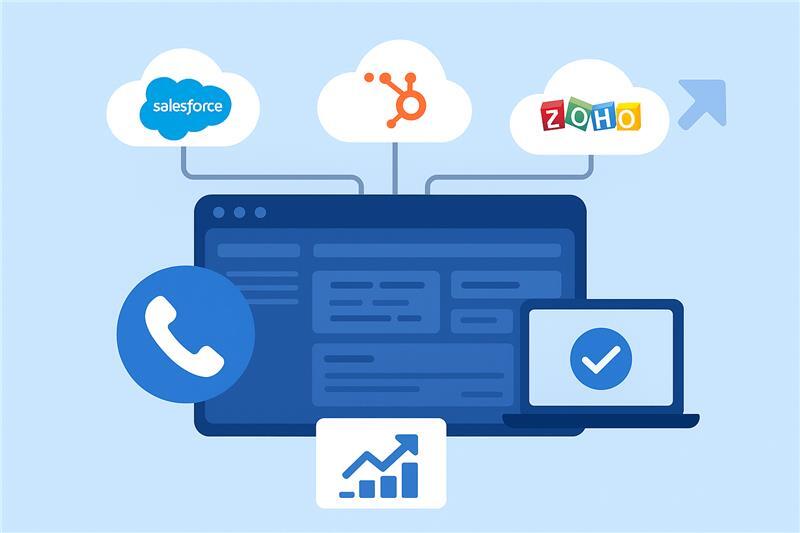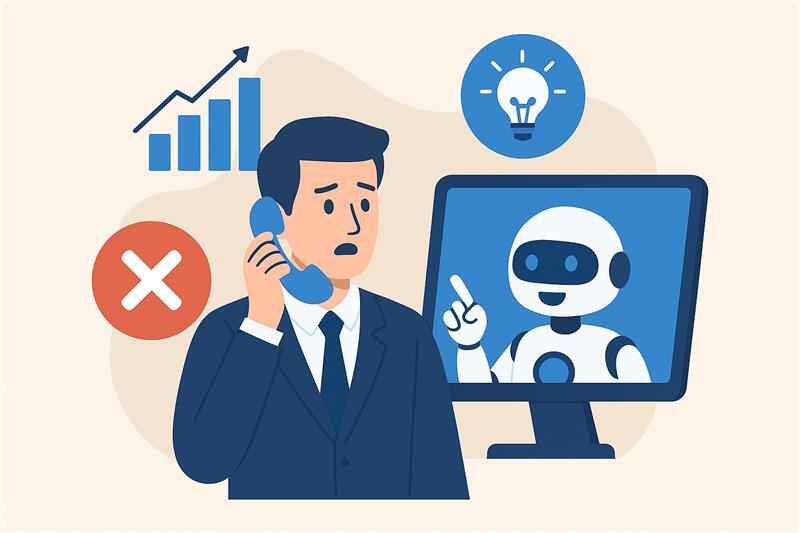
How to Handle Objections in Sales: LAVA Technique
Handling objections in sales is often the defining skill that separates the best salespeople from the rest. When a prospect pushes back during a conversation, it doesn’t mean rejection—it means they’re actively considering your offer. A statement like “Your solution feels costly” often translates to “Show me the value that makes this price worth it.”
Understanding why is objection handling important becomes clear when you realize that objections reveal what's really on your prospect's mind. Most of them can be traced back to three key drivers:
- Fear – concern about making a bad decision
- Uncertainty – not having enough information or clarity
- Past experiences – negative encounters that fuel hesitation
Research shows that sales reps who excel at objection handling can improve their close rates by up to 64%. At the core, every objection ties back to five barriers: no need, no budget, no urgency, no interest, or no trust.
The LAVA Method for Handling Objections offers a proven framework to address these concerns directly turning resistance into rapport and obstacles into opportunities.
Four Types of Sales Objections and How to Handle Them
The first step to handling objections is recognizing what type you’re dealing with. Many objections are surface level “smokescreens” that hide deeper concerns. Let’s break down the four most common ones and how to respond.
1. Price and Budget Objections
Prospects often say, “It’s too expensive” or “We don’t have the budget.” In fact, 35% of salespeople say price is the most common objection. But most of the time, price isn’t the real issue—it’s about value. What they mean is: “I don’t see enough return on investment” or “I’m not sure this will solve my problem.”
Handling the price objection effectively using the LAVA framework, you can listen for these value concerns, acknowledge budget limits, validate the importance of ROI, and show how your solution delivers measurable results.
2. Need and Urgency Objections
When a prospect says, “We’re fine with what we have” or “This isn’t a priority right now,” they’re signaling doubt about need or urgency. Often, this comes from not fully realizing the risks of doing nothing or the unique advantages your solution offers.
Acknowledge their comfort with the status quo, then highlight why waiting could cost more in the long run and why change is necessary today.
3. Trust and Credibility Objections
Objections like “I’ve never heard of your company” or “How do I know this will work?” reflect a lack of trust. The prospect is worried about making the wrong choice.
Here, the effective objection handling frameworks helps you by actively listening, validating their concerns, and backing your claims with testimonials, case studies, or references. Building credibility and showing proof is key to overcoming this objection.
4. Timing and Implementation Objections
Prospects might say, “We’re not ready yet” or “We’re too busy with another project.” These objections usually come from fear of disruption or concern about limited resources.
The best approach is to acknowledge the challenge, validate their concerns, and present flexible options—such as phased rollouts, hands-on support, or tools that make implementation smoother.
Listen, Acknowledge, Verify & Address (LAVA): The LAVA Technique for Handling Objections
The LAVA Technique (Listen, Acknowledge, Verify, and Address) is a simple yet powerful framework for handling sales objections. Instead of reacting defensively, it helps you slow down, understand what the prospect is really saying, and respond in a way that builds trust. By following these four steps, sales professionals can turn objections into opportunities for deeper conversations and stronger relationships.
Listen - Listen to the prospect’s objections without interrupting them.
Acknowledge - Acknowledging the objection shows to the prospect that you have been actively listening.
If a prospect says “I think this is way too expensive for us at the moment”, acknowledge with “I understand that you think the price is too high, in the current situation”. There could be two objections here and acknowledging them may help you see which one is more important (price or current situation)
Verify - The objections raised may be a smokescreen for something deeper.
The objections raised may be a smokescreen for something deeper. A price objection need not be about price, but the prospects’ inability to see value in the offering. This is an opportunity to probe further and verify the real concern.
Is the price too high because its over what the prospect had budgeted, or because somebody is offering a similar product/service for less?
Verifying the true cause of the objection will help you address your objection in the most convincing way. Our data shows that Top Reps follow up objections with probing questions almost 2 times more than the average rep.
Address - Once you have understood the objection it is very important to address it.
Sometimes it's simple - objections about price can be tackled by ROI calculations straight out of your sales playbook (Reps using Salesken.ai would get these cues in real-time!). Sometimes, you may not have a ready answer. Even then it’s important to address the objection. You can say you do not have an answer and will consult an expert to get back to them. For objections like missing features or unsupported payment terms - you can accept that you cannot completely resolve the prospects concerns.
Either way, it’s very important to ensure an objection is addressed before the conversation is over.
We looked at our data and saw that the top reps address stated objections almost 50% more than other reps. It’s hard to determine if every answer was convincing, but just the act of addressing an objection seems to be a good sales practice.
Sales reps dread objections and view it as an obstacle to closures, but our data shows that the prospects who eventually convert raise a minimum of 3 objections. So the next time you face an objection, keep your fear at bay and use LAVA to seal the deal!
How Salesken AI Transforms Objection Handling Techniques in Sales
Salesken AI is a cutting-edge conversation intelligence platform that empowers sales teams to master objection handling techniques in sales through real-time guidance and data-driven insights. Our AI-powered solution analyzes thousands of sales conversations to identify patterns and provide actionable recommendations that help sales professionals implement the LAVA framework more effectively.
With Salesken AI, sales reps receive:
- Real-time cues: during calls when objections arise, suggesting the best objection handling methods to use
- Conversation analytics: that reveal objection patterns and successful response strategies
- Performance insights: showing how top performers handle different types of objections
- Automated coaching: that helps teams improve their sales objection handling techniques
- ROI calculations: and value propositions delivered instantly when handling the price objection
Our platform has helped sales teams improve their objection handling success rates significantly by providing the right guidance at the right moment. By combining proven objection handling frameworks like LAVA with AI-powered insights, Salesken AI transforms how sales professionals' approach and overcome prospect concerns.
FAQs
1. What are the most effective objection handling techniques in sales?
The most effective objection handling techniques in sales include the LAVA method (Listen, Acknowledge, Verify, Address), active listening without interrupting, using mirroring to acknowledge concerns, asking probing questions to uncover root issues, and addressing objections with evidence-based responses like ROI calculations and case studies.
2. Why is objection handling important for sales success?
Why is objection handling important becomes evident when you consider that prospects who eventually convert raise a minimum of 3 objections during the sales process. Effective objection handling can improve close rates by up to 64%, transforms resistance into rapport, and reveals what's truly on your prospect's mind, allowing you to address their real concerns.
3. How do you handle price objections effectively?
Handling the price objection requires understanding that price concerns often mask value perception issues. Use the LAVA framework to listen completely, acknowledge budget constraints, verify if it's about budget limits or perceived value, then address by demonstrating ROI, comparing long-term costs of inaction, and showing measurable results your solution delivers.
4. What is the LAVA framework and how does it work?
The LAVA framework is a proven objection handling framework consisting of four steps: Listen (without interrupting), Acknowledge (using mirroring techniques), Verify (probe to uncover real concerns), and Address (provide specific solutions or commit to finding answers). This method helps build trust while systematically addressing prospect concerns.
5. What are the main types of sales objections?
The main objections handling techniques should address four key objection types: Price/Budget objections (value perception issues), Need/Urgency objections (status quo comfort), Trust/Credibility objections (fear of wrong decision), and Timing/Implementation objections (resource or disruption concerns). Each requires specific objection handling methods tailored to the underlying concern.

.png)

